InFUSEd: opportunities for training
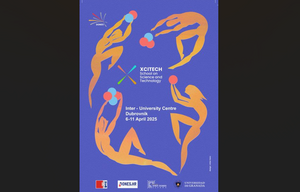
The DONES Xcitech School will take place from 6 to 11 April 2025 in Dubrovnik, Croatia.
The third edition of the School, which is a collaborative effort between the University of Granada (Spain) and the IFMIF-DONES España consortium, is a premier science and technology education platform. Focused on Big Science technologies, the school aims to create a new generation of highly skilled professionals. It serves as a crucial bridge connecting academic research with the demands of the expanding Big Science industry, and in particular of fusion energy.
The program is built around two specialized courses that will explore the science and applications of advanced fusion technologies: Radiation Effects on Fusion Structural Materials and IFMIF-DONES in Depth.
The registration deadline is 1 April 2025. See all information here.
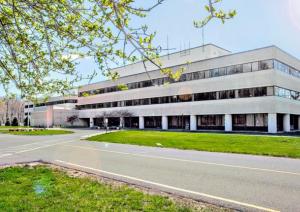
In the Operations Internship Program, undergraduate, and graduate students join staff at the Princeton Plasma Physics Laboratory for 10 weeks in the summer providing a valuable, practical experience performing tasks critical to the successful operations of a National Laboratory.
As projects become available, applicants must apply online, providing a transcript and two reference letters(Link is external) (Link opens in new window), by March 15, 2025, for the summer of 2025.
To be eligible, applicants must:
- Must be enrolled in high school, in a four-year college or university, recent graduate (up to one year)
- Be eligible to work in the United States
For more information, see this website.
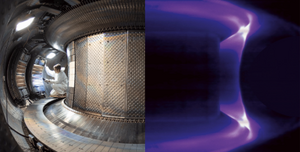
Apply before 15 February 2025 for the Erasmus Mundus European Master of Science program in nuclear fusion and engineering physics.
The European Master of Science in Nuclear Fusion and Engineering Physics (FUSION-EP) is a two-year Erasmus Mundus Joint Master Degree (EMJMD) funded by the European Union. Focusing on the physics and technology of nuclear fusion as an energy source, it offers research-oriented education in engineering physics, offered by a consortium of eight European universities. No Erasmus Mundus scholarship will be available for this campaign.
.
See all information on this website.
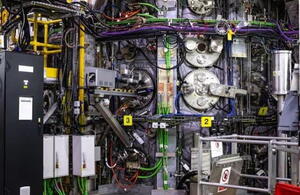
The UK Atomic Energy Authority (UKAEA) is organizing a Fusion Engineering Academy over two weeks in early 2025 at the Culham Campus near Oxford. The training will have these features:
- Specifically for engineers and scientists (a STEM degree is a prerequisite)
- Hands-on activities
- Lectures supported by written assignments and study sessions with a tutor
- All Academy materials will be open access
The Academy is divided into two parts (10-13 February 2025 and 3-6 March 2025), which can be booked separately, although it is recommended that delegates take both. (Any delegates attending Part 2 only will be asked to study the introductory material from Part 1 which will be supplied.) Registration is open now.
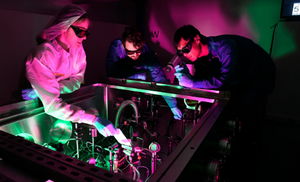
The ZEUS and Plasma Physics (ZaPP) Summer Undergraduate Research Program at the University of Michigan (USA) is designed for undergraduate students seeking a research experience focused on plasma physics outside their home institution. This year's program will take place from 26 May 2025 to 4 August 2025.
Eligible Applicants Must:
- Be full-time college students at a U.S. university or college
- Have completed at least two semesters
- Have a minimum GPA of 3.0
- Devote 10 consecutive weeks to full-time laboratory research
Application deadline: Monday, February 3, 2025 (letter(s) of reference must also be received by the deadline)
See all information here.
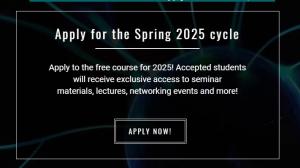
The Computational Research Access NEtwork (CRANE) is organizing a WINTER/SPRING 2025 VIRTUAL SEMINAR on Computational Research Methods for Plasma Physics & Sciences for underrepresented communities. The course is free to undergraduates. Apply before 6 December 2024.
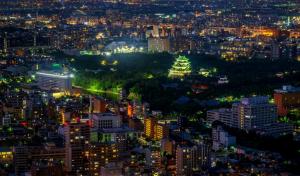
The 13th ITER International School will be held from 9 to 13 December 2024 in Nagoya hosted by National Institute for Fusion Science (NIFS), Japan. The theme this year is "Magnetic Fusion Diagnostics and Data Science."
Diagnostics are key to the achievement of ITER fusion power demonstration goals and they require the application of a wide range of techniques. But diagnostics are not enough to ensure ITER's success; only through advanced analysis of the data they provide will it be possible to guide the experiments towards their fusion power goals. It is timely to address these multidisciplinary areas in the ITER school.
See all information here.
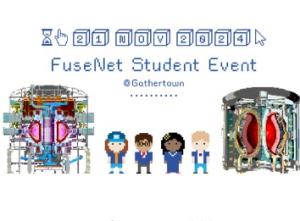
On 21 November 2024, the European Fusion Education Network FuseNet will organize the FuseNet Student Event! All Bachelor and Master's students interested in fusion are welcome to join this online event.
During the day, in interactive lectures, you will learn about state-of-the-art fusion topics and the role of industry. During the casual social events you will meet fusion students from all over the world and create a network of future colleagues.
For more information or to sign up see this website. The registration deadline is 14 November.
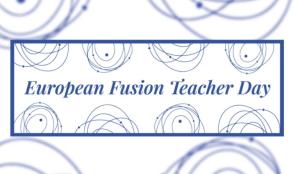
The 5th European Fusion Teacher Day will be held on 11 October 2024. Organized for all science and physics teachers in Europe by the European Fusion Education Network, FuseNet, it aims to introduce nuclear fusion to secondary school teachers, to discuss how it can be taught, and to create enthusiasm for the field of fusion at the secondary education level.
See all information at this link.
Every year, the Max-Planck-Institute for Plasma Physics in Greifswald, Germany, organizes a one-week summer school in plasma physics for undergraduates. The 2024 school will take place from 9 to 16 September.
The course covers the main aspects of plasma physics with emphasis on nuclear fusion:
• basics of plasma physics and nuclear fusion
• kinetic and magneto-hydrodynamic description of a plasma
• concepts and experimental results of tokamak and stellarator configurations
• plasma heating and diagnostics
• plasma-wall interaction and materials research
• ITER and the next steps towards a reactor
• Overview on alternative fusion projects
The lectures—held in English—are designed for physics and engineering students of European universities who have passed their bachelor (undergraduate) courses not yet started or decided their PhD project.
See all information here.
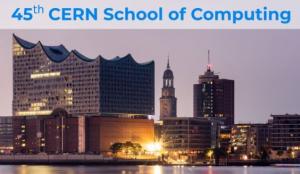
The 45th CERN School of Computing (CSC 2024) will take place from 8 to 21 September 2024 in Hamburg, Germany. This year's School is organized in collaboration with the Deutches Elektronen-Synchroton (DESY) and the event will be hosted at the DESY campus in Hamburg.
The two-week programme will consist around 50 hours of lectures and hands-on exercises, covering three main themes: physics computing, software engineering, and data technologies. Students who pass the final optional exam will receive a diploma from the CSC, as well as ECTS credits.
The School is aimed at postgraduate (i.e., minimum Bachelor degree or equivalent) students, engineers and scientists with a few years' experience in particle physics, in computing, or in related fields. Applications are welcomed from all countries and nationalities. See all information here.
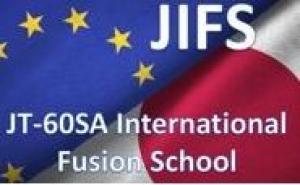
* Supplementing their training by lectures, group works and visits, taking advantage of the JT-60SA facility, environment, experiences and data for practical examples and applications.
* Establishing and consolidating connections between Japanese and European students and young professionals, who could ideally be involved together in the future JT-60SA and ITER operation, scientific exploitation and upgrades.
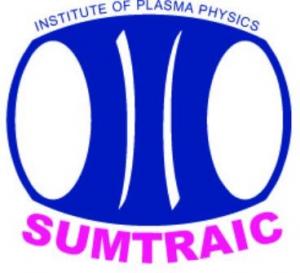
SUMTRAIC is an experimental SUMmer TRAIning Course in plasma physics in magnetic confinement fusion devices (tokamaks) organized annually at the Institute of Plasma Physics of the Czech Academy of Sciences in Prague (IPP CAS), Czech Republic.
The centre of gravity of this summer school lays in the direct involvement of the participants in the processing and analysis of experimental data from the COMPASS tokamak, which operated from 2009 to 2021 as one of the leading devices among smaller tokamaks in the world, with an experimental program that focused on plasma-wall interaction, edge plasma physics, H-mode and runaway electrons. It will be followed by COMPASS Upgrade, which will enable cutting edge research with high power (10 MW) and magnetic field (5 T) plasma scenarios. Topics on studies and simulations related to this future device might be proposed to students.
Topics in the past have included:
- Characterization of ELM behavior on COMPASS
- Dynamics of edge localized modes and sawtooth instability on COMPASS
- Causality studies during plasma disruptions
- Effect of the plasma composition on the sheath heat transmission coefficient
- Effects of HFS error field on H-mode plasma and the means of how to correct them
- Post-processing of tomographic reconstructions at COMPASS
The next course will be held from 26 August to 6 September 2024. See this page for all information. (Deadline for application is 9 June.)
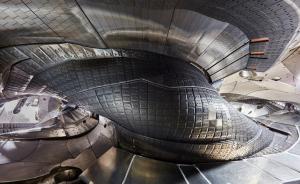
The Princeton Plasma Physics Laboratory (PPPL) Graduate Summer School (GSS) welcomes students from a broad range of fields: magnetic fusion energy sciences, high energy density plasmas, astrophysics, low temperature plasmas, materials science, etc. Advanced undergrads, grads and early career scientists/engineers are encouraged to apply.
The 2024 School will be a collaboration between PPPL and the Simons Foundation Hidden Symmetries & Fusion Energy project. The school will focus on the scientific and engineering challenges of designing and deploying stellarators for fusion. It will have a hybrid format, with ~25 in-person and ~25 virtual participants.
Applications close on 30 April. See all information here.
The mission of the PlasmaPy Project is to foster the creation of a fully open source software ecosystem for plasma research and education. The PlasmaPy core package intends to be for plasma science what Astropy is for astronomy—a collection of functionality commonly used and shared between plasma physicists and researchers globally, running within and leveraging the open source scientific Python ecosystem.
The PlasmaPy community is excited to announce its inaugural summer school, which will be held from 29 July to 1 August 2024 at Bryn Mawr College in Pennsylvania (US). After introducing how to use PlasmaPy, this workshop will help participants learn how to contribute to an open source software project like PlasmaPy.
The due date for applications is Friday 24 May. For all information, please see this page.
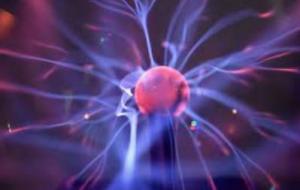
Organized at a leading site for research in plasma physics and controlled nuclear fusion, the Culham Centre for Fusion Energy (CCFE) in Oxfordshire, UK, the Culham Plasma Physics Summer School aims to provide an introduction to the fundamental principles of plasma physics, together with a broad understanding of its fields of application. No preceding knowledge of plasma physics is assumed but familiarity with electromagnetism and applied mathematics at first-degree level will be helpful. Previous schools have attracted students from more than 50 different countries.
Lecturers are drawn from the Culham Centre for Fusion Energy (CCFE), the Rutherford Appleton Laboratory (RAL) together with leading European universities. All are renowned experts in their fields.
Students must be over 18 to attend the summer school and generally will be in their final year of undergraduate or first year of post graduate study. All classes are in English.
The next Summer School will take place from 15 to 25 July 2024. See this page for all information.
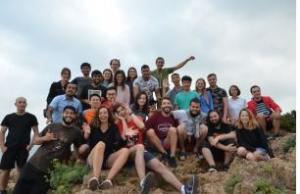
PlasmaSurf is a summer school by the Instituto de Plasmas e Fusão Nuclear (IPFN) in Lisbon, Portugal, on plasma physics, intense lasers and nuclear fusion, tailored for BSc/MSc engineering and physics students. It is a great opportunity to get an insight into these topics with a view to a future career, or to complement your curricular training by broadening your knowledge in an exciting and forefront area of physics.
Complementary to PlasmaSurf, we offer a MOOC in plasma diagnostics included in a Blended Intensive Programme that can grant you 3 ECTS! Get to know more details in the program here.
The deadline for application is 31 May 2024. See all information on this webpage.
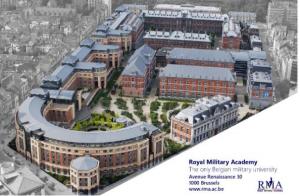
The 15th Carolus Magnus Summer School on Plasma and Fusion Energy Physics will be held from 24 June to 05 July 2024 in Brussels, Belgium.
The Carolus Magnus Summer School is devoted to theoretical, experimental and technological aspects of high temperature plasmas confined in toroidal magnetic fields. The Summer School has a focus on the physics of energy production using controlled nuclear fusion. Here, special emphasis is laid on tokamaks, but stellarators and other confinement concepts are also discussed. The Carolus Magnus Summer School does not only teach fusion basics, it also describes the latest developments on the way to the fusion power plant. The Summer School covers a broad area of Go-Symbol topics.
The Laboratory for Plasma Physics of the ERM/KMS Brussels and the Belgian Nuclear Research Centre SCK•CEN at Mol, the Institute for Energy and Climate Research - Plasma Physics at Research Centre Jülich, and DIFFER - Dutch Institute for Fundamental Energy Research in Eindhoven are associated in the "Trilateral Euregio Cluster" (TEC), which is responsible for the organisation of the Carolus Magnus Summer Schools.
Most lectures are given by senior scientists from the TEC Institutes and by academic staff from the nearby universities of North Rhine-Westphalia, Belgium and the Netherlands. Usually, some lectures are also delivered by experts from other laboratories associated in the European fusion research programme and from ITER. Moreover, the programme contains evening lectures on special subjects.
The Carolus Magnus Summer School is primarily intended for PhD students as well as for master students who intend to become PhD students after the present academic year. Experienced scientists or engineers who, coming from other disciplines, recently entered the fields of plasma physics or nuclear fusion will also benefit from the Summer School that will provide an overview of various interconnected research domains.
Registrations will be open from Monday, 4 March 2024 to Friday, 26 April 2024. See all information here.
The 11th International Workshop & Summer School on Plasma Physics and the 11th International Workshop on Microwave Discharges: Fundamentals and Applications will take place at Black Sea from 24 to 30 June 2024. The school brings together leading researchers in the field of plasma physics to give lectures on their specialties to advanced graduate students, postgraduate students and young scientists in the form of a one-week intensive course.
Scientists experienced in other disciplines who have recently entered the fields of plasma physics or nuclear fusion will also benefit from the school, which provides an overview of the various inter¬connected research domains and describes the latest developments. Graduates and teachers of science are welcome, as is anyone with an interest in the subject.
For all information, see this website.
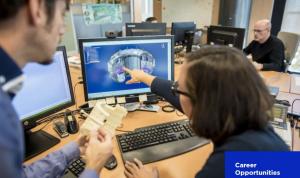
The European Domestic Agency for ITER, Fusion for Energy (F4E), has opened a fusion Traineeship Scheme, with opportunities in Barcelona (Spain), at ITER (France), and in Garching (Germany).
Apply by Monday 10 June for positions beginning in October 2024. Fusion for Energy is looking for profiles to match its needs in fusion engineering and physics, project and contract management, market intelligence, and adminstration. It offers a supportive work environment, competitive benefits, and opportunities for professional development.
Traineeships are open to candidates with European or Ukrainian nationality who have a university degree (at least three years) and a good knowledge of English (minimum B2).
See a list of available opportunities here. See all information on how to apply here.
During the weeks of June 10th-21st 2024, PPPL will virtually host an intensive course on plasma and fusion energy sciences, taught by world renowned scientists from various national and international institutions. The course is targeted at undergraduate students interested in plasma physics and fusion energy science and is open to public at large.
Registration is free and participants that attend the full course will receive a certificate of completion.
The introductory course will be fully conducted via Zoom, and in half-day sessions (12PM-5PM ET) in order to accomodate various time zones.
The content will reflect the broad research under the Fusion Energy Sciences and Plasma Physics umbrella, including discovery plasma sciences, magnetic fusion energy, fusion materials and technology and high energy density plasmas.
See more information on this page.
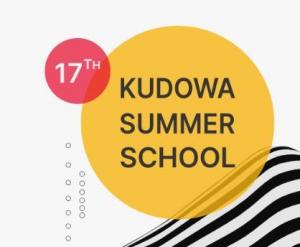
The 17th Kudowa Summer School, organized by the Institute of Plasma Physics and Laser Microfusion (IPPLM) in Poland, will take place from 3 to 7 June 2024.
The school caters to a broad audience (Bachelor's and Master's students in physics-related disciplines, engineering students focusing on energy and cutting-edge technologies, PhD students and young scientists involved in advancing nuclear fusion for energy production), offering a comprehensive exploration of plasma physics research, including:
- Basic plasma and fusion energy
- Tokamaks and stellarators
- Plasma focus and Z-pinches
- Plasma diagnostics and technology
- Space plasma and electric propulsion
- Laser plasma
For all information, see this page.
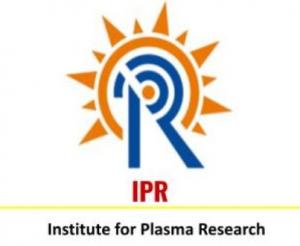
The Institute for Plasma Research (IPR) in Gandhinagar, Gujarat (India) organizes a summer school on plasma and its applications in nuclear fusion and industry.
The course comprises lectures on plasma science, nuclear fusion and industrial technologies, and gives participants the opportunity to work on a short project related to plasma science or technology in conjunction with IPR scientists.
The summer school is open to students who have completed their M.Sc. Physics and B.E/B.Tech (Mechanical and Electrical only).
The 2024 Summer School will be held from 27 May to 5 July 2024. See all information here.
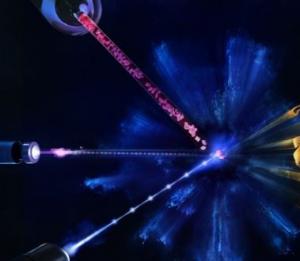
The 8th EIROforum School on Instrumentation will take place in Garching, Germany, from 13 to 17 May 2024. Registrations will be open from 1 December 2023 to the end of February 2024.
The EIROforum School of Instrumentation (ESI) is jointly organized by the Instrumentation Working Group of the EIROforum organizations.
The objective of ESI is to teach the basic principles of instrumentation to young researchers (PhD students, postdocs) and engineers.
One day of the school is dedicated to our highlight topic:
Developing for the future - Benefits of science to society from creativity to innovation
EIROforum is an organization consisting of eight European intergovernmental scientific research organizations (CERN, EMBL, ESA, ESO. ESRF, EUROfusion, European XFEL, and ILL).
For more information, or to apply see this webpage.
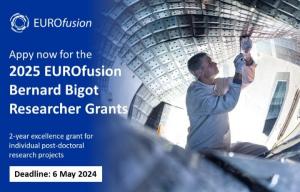
Apply by 6 May for a 2025 EUROfusion Bernard Bigot Researcher Grant.
Researchers and engineers of all nationalities in possession of a doctoral degree (PhD) who have completed the PhD and defended their thesis in the two years preceding the application deadline. The candidate must be employed by a EUROfusion Consortium member or one of their Affiliated Entities during the grant period. Interested candidates should jointly prepare their application with an institute(s) affiliated with EUROfusion, who submits the application and offers to employ the candidate for the proposed duration of the project.
The grant will contribute to the salaries and research and training activities of up to 10 outstanding early career researchers sor two years starting in 2025. The application deadline is 6 May 2024. For details, or to join the information session planned on 11 April 2024 at 14:00 CET, see the EUROfusion website.
The APS-DPP Graduate School & Careers Day is an opportunity to learn about US graduate programs in plasma physics and the fusion sciences as well as about careers in private industry and national labs. Learn about the application process and about fellowship opportunities for graduate students, and network with other graduate students and early career scientists.
The 2024 edition will be held on 27 April, 12:00-6:00 p.m. ET.
Register for the webinar here.
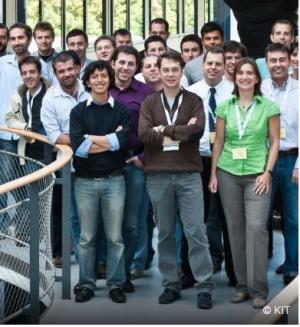
The Karlsruhe International School on Fusion Technologies has been held since 2007 at the Karlsruhe Institute of Technology (KIT, formerly Forschungszentrum Karlsruhe).
It started as the Fusion Summer School, with the aim of expanding the knowledge of young international scientists on the process of nuclear fusion. Leading scientists from KIT as well as international partners lead the program lectures.
The annual Karlsruhe International School on Fusion Technologies gives an overview on key fusion technologies, their current status, and on long term R&D—particularly in view of the next step beyond ITER, the demonstration power station DEMO.
The next School will take place from 10 to 18 April 2024 in Karlsruhe, Germany. For all information see this page.
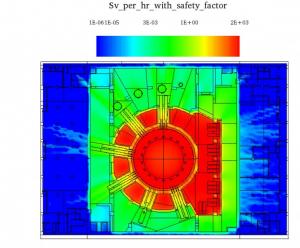
The 15th ITER Neutronics Meeting and Fusion Neutronics Workshop 2024 will be held at ITER Headquarters from 8 to 10 April 2024.
The workshop will provide the opportunity for the fusion neutronics community to discuss recent advancements, issues and successes in the field.
Considering work underway in startups on alternative fusion concepts, progress on other technologies such as inertial fusion, and recent advancements (codes, shielding materials, etc.), the workshop seeks to broaden participation beyond ITER/DEMO scope. We encourage young researchers and fusion start-ups to participate in this event and present their work.
Planned topics include:
- Neutronics related to ITER
- Nuclear-radiation-related safety issues (safety margins/uncertainties, code qualification)
- Computational tools and nuclear data relevant for nuclear fusion (transport codes, activation codes, CAD/MCNP converting tools ...)
- Dose reduction methods and optimization, ALARA
- Shielding materials
- Material damage, nuclear heating, radioactive waste production and management
- Accelerator-driven neutron sources for fusion applications
- Activated corrosion products
- Nuclear licensing for fusion reactors
- Neutronics beyond ITER (DEMO, fusion power plants, alternate fusion schemes)
This meeting will be held primarily in-person but a few online presentations/participations are also possible. Subject to conditions, this workshop also includes ITER construction site visit.
See important dates and registration information on this page.

**Launching summer 2024**
In the Princeton Plasma Physics Laboratory's Operations Internship Program, undergraduate, and graduate students will join staff at the Princeton Plasma Physics Laboratory for 10 weeks in the summer for a valuable, practical experience performing tasks critical to the successful operations of a National Laboratory.
Applicants must apply online, providing a transcript and two reference letters.
Participants are offered a competitive stipend, housing at the Princeton University dorms, and travel to/from Princeton. Participants will attend a week-long course in plasma physics at the start of the program and will deliver an oral and a poster presentation of their project at its conclusion.
To be eligible, applicants must:
- Must be enrolled in high school, in a four-year college or university, recent graduate (up to one year)
- Be eligible for work in the United States
See all information here.
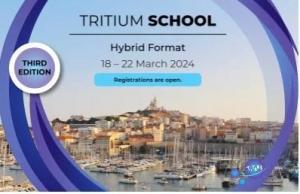
The Third Edition of the Tritium School will take place in Marseille, France, from 18 to 22 March 2024. Organized by the TITANS Project (which strives to improve tritium management and knowledge to meet the growing nuclear energy demand), it is organized around four days of invited lectures and contributed talks, and a fifth day comprising a visit to the ITER site.
The young generation of researchers working in fusion and fission research and development is encouraged to participate.
Topics for discussion will include tritium management, inventory and control; waste; radiotoxicity/ecotoxicity; epidemiology of tritium; and tritium dosimetry.
For all information, and to register, see this webpage.
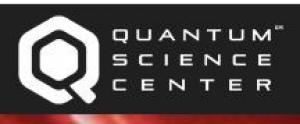
The 2024 US Quantum Information Science Summer School (USQIS) is the second joint summer school facilitated by the five US Department of Energy National Quantum Information Science Research Centers (NQISRCs): the Quantum Science Center (QSC), the Quantum Systems Accelerator (QSA), Q-NEXT, the Co-design Center for Quantum Advantage, and the Superconducting Quantum Materials and Systems Center.
Organized by the QSC headquartered at DOE's Oak Ridge National Laboratory (ORNL) and QSA led by DOE's Lawrence Berkeley National Laboratory, this year's school will be an immersive 12-day learning experience on ORNL's campus. Attendees will participate in hands-on quantum science and technology activities in a laboratory setting that is home to multiple world-leading facilities. The curriculum will be taught at a graduate level and is open to both members and non-members of the NQISRCs. Undergraduate students in their junior (third) or senior (fourth) year, graduate students, and postdocs and early-career researchers are invited to apply.
Applications close 15 March 2024. See all information here.
The Science Undergraduate Laboratory Internship (SULI) program at the Princeton Plasma Physics Laboratory (PPPL) is for undergraduates interested in performing plasma physics and fusion energy science and engineering research. Students perform research, under the guidance of laboratory staff scientists or engineers, on projects supporting PPPL's research.
Applications for the SULI program are solicited annually for three separate internship terms. Internship appointments are 10 weeks in duration for the summer term or 16 weeks in duration for the fall and spring terms.
2024 spring SULI term dates (16-weeks): On or around the second week of January through the end of April
2024 summer SULI dates (10-weeks): June 2-August 9
2024 fall SULI dates (10-weeks): On or around second week of September through the end of December
See all information about applying here.
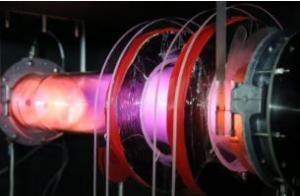
If you are currently enrolled as a full-time undergraduate student at an accredited US institution or just about to complete your undergraduate studies, you may be eligible to apply for the Princeton Plasma Physics Laboratory's Plasma and Fusion Undergraduate Research Opportunities (PFURO) program.
Participants will conduct 10 weeks of research in the summer with plasma/fusion scientists from undergraduate institutions throughout the US (universities, colleges, and other educational research institutions). Past institutions have included: UCLA, University of Rochester, Bryn Mawr College, the US Coast Guard Academy and Columbia University.
Research will be in one of the following areas: magnetic fusion energy; fusion materials and technology; general plasma science; and high energy density plasmas.
See more information on this website. The application deadline for Summer 2024 is 29 February 2024.
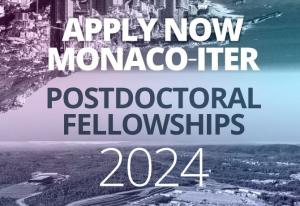
The recruitment campaign for 2024-2026 Monaco-ITER Postdoctoral Fellowships has opened. We are looking for top candidates with an excellent track record of creativity and accomplishment. Research possibilities exist in many areas of fusion science and technology, including:
Control technology
Plasma-facing materials and components
Burning plasma physics (confinement, stability, plasma-wall interactions, control, energetic particle physics)
Heating and current drive physics and technology
Fusion plasma diagnostics
Superconducting magnet technology
Electrical engineering
Mechanical engineering/ structural analysis
Remote handling technology
Vacuum technology and plasma fuelling technology
Cryogenics
Tokamak operations
Tritium breeding and tritium handling technology
Thermohydraulics
If your PhD was awarded after 1 January 2021—or if you are about to obtain one—and you come from one of the seven ITER Members or the Principality of Monaco, you are eligible to apply.
See all information on this webpage. Applications close on 29 February 2024.

Are you a student or a young professional working in the nuclear field (medicine, industry, radiation protection...) in Europe? Join us in a social media competition to demystify the words "nuclear" and "radiation."
The deadline is 31 January 2024. See all details on the FuseNet website here.
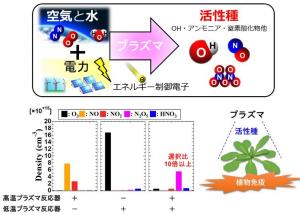
一般社団法人プラズマ・核融合学会では,これからの世界を担う高校生の皆さんが最先端の科学や技術に触れ,自ら考える機会を提供することを目的に,2003(平成15)年から「高校生シンポジウム」を開催しています。本年は2024年1月27日(土)九州大学筑紫キャンパスにおいて第21回高校生シンポジウムを開催予定です。発表分野はプラズマや核融合に関するテーマだけでなく,その他の科学・技術分野を広く受け入れます。
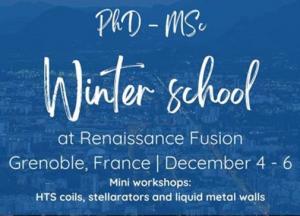
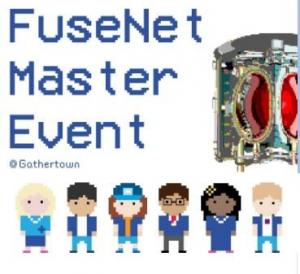
The annual FuseNet Master Event will take place on 23 November 2023 on line. All Master's students in fusion-related fields are invited to join the event.
The day will be filled with interesting talks by top scientists, introductions to fusion start-ups and ITER-related companies, and chances to meet your fellow students. Are you currently a fusion or plasma physics master student, or are you starting next academic year? Looking for an opportunity to meet the community and learn more about this fascinating subject? This event is for you.
See more on this page.
This two week-long intensive school will introduce participants to important skills in computational and experimental plasma physics, and offer the opportunity to conduct cutting-edge research and technology under the guidance of leading international scientists and engineers. Participants will have the opportunities to interact with world-class international fusion experts, making the Fusion Energy School an excellent way to explore your interest in fusion and prepare for a career in this field.
See more information on this page.
The American Physical Society is holding a Plasma Science Student Expo in Denver, Colorodo (USA), on 2 and 3 November 2023.
Students and teachers can register to attend during school hours. Registration is required.
Participate in hands-on plasma and physics demonstrations, learn how plasma is part of our daily lives, and interact with local, national and international students.
Find out more about registering at this webpage.
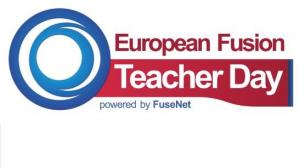
The European Fusion Education Network, FuseNet, is organizing its fourth annual European Fusion Teacher Day on 6 October 2023. Open to all secondary school science and physics teachers in Europe, the virtual event aims to introduce educators to nuclear fusion and exchange about how the subject can be taught in school. The ultimate goal is to increase exposure of students to the subject at the secondary level in order to spark interest and enthusiasm in the field.
Because the event is open to educators across Europe, the half-day program begins with local sessions via Zoom. After the local sessions, participants will come together for a global livestream before returning to a local follow-up session.
All information will be posted on this page.
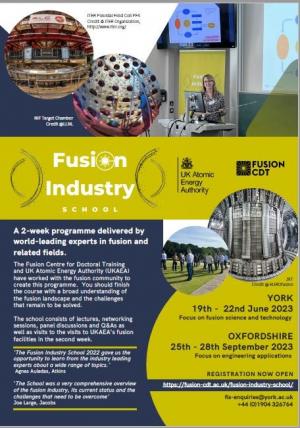
The Fusion Centre for Doctoral Training and UK Atomic Energy Authority (UKAEA) have worked with the fusion community to prepare a 2-week program created to meet the needs of the emerging fusion industry and associated supply chain companies and organizations, as fusion develops into the industrialization era in readiness for commercialization.
The Fusion Industry School is a 2-week interactive programme of lectures from world-leading experts in fusion, aimed at providing an overview of the current progress and challenges to industry professionals. The school consists of lectures, networking sessions, panel discussions and Q&As as well as visits to the UKAEA national fusion facilities.
The first week (19-22 June 2023) takes place in York (UK) and has an emphasis on the underpinning fusion science and technology. The second week (25-28 September 2023) is in Oxfordshire (UK) and will build on this first week, with more of an emphasis on engineering applications. The program is optimized for delegates attending both weeks, but you will still benefit if you are only able to attend one. You do not need to have prior knowledge of fusion science and technology.
The school is particularly adapted to "early and mid-career scientists, engineers and regulators to grow a common understanding in ... fusion expertise." (Justyn Crane, Optima Systems Consultancy)
Find out more on this page.
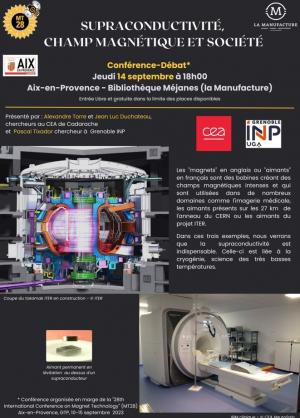
Jeudi 14 Septembre à 18h00, à la bibliothèque Méjanes (La Manufacture) à Aix en Provence aura lieu une conférence sur les aimants et leur utilisation dans différents domaines.
"Les "magnets" en anglais ou "aimants" en français sont des bobines créant des champs magnétiques intenses et qui sont utilisées dans de nombreux domaines comme l'imagerie médicale, les aimants présents sur les 27 km de l'anneau du CERN ou les aimants du projet ITER.
Dans ces trois exemples, nous verrons que la supraconductivité est indispensable. Celle-ci est liée à la cryogénie, science des très basses températures."
Cette conférence-débat s'adresse à tous et sera annimée par Alexandre Torre et Jean Luc Duchateau, chercheurs au CEA de Cadarache et Pascal Tixador chercheur à Grenoble INP. Elle se tient en marge de la conférence scientifique "28th International Conference on Magnet Technology" (MT28) qui aura lieu à Aix-en-Provence, GTP, du 10 au 15 septembre 2023.
Entrée libre et gratuite dans la limite des places diponibles.
Voir toutes les informations ici.
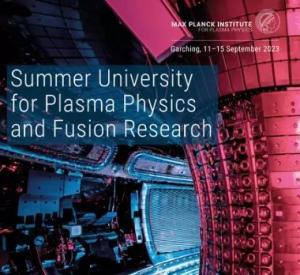
The IPP Summer University for Plasma Physics and Fusion Research covers the main aspects of plasma physics with emphasis on nuclear fusion:
- basics of plasma physics and nuclear fusion
- kinetic and magneto-hydrodynamic description of a plasma
- concepts and experimental results of tokamak and stellarator configurations
- plasma heating and diagnostics
- plasma-wall interaction and materials research
- computational methods in plasma physics
- safety and environmental aspects of fusion
- ITER and the next steps towards a reactor
- basics of inertial fusion
The lectures are designed for physics and engineering students of European Universities who passed their bachelor (undergraduate) courses and have not yet decided their PhD topic.
One of the goals of the IPP Summer University is to promote an exchange of views among the coming generation of scientists. Opportunities for discussions with lecturers and students are provided between the sessions, during the reception and the excursion.
The venue of the Summer University is the Max Planck Institute for Plasma Physics (IPP) in Garching where ASDEX Upgrade is operating. During the course a tour of ASDEX Upgrade and laboratories is offered.
See all information here.
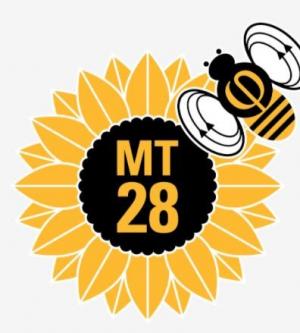
Join the world's foremost experts in all aspects of magnet technology from 10 to 15 September 2023 in Aix-en-Provence, France, for the 28th edition of the International Conference on Magnet Technology (MT-28), co-sponsored by the ITER Organization.
Keep an eye on the website for more about the planned Student Program, with events both inside and outside of the conference venue. See all information on the dedicated conference website.

SUMTRAIC is an experimental SUMmer TRAIning Course in plasma physics in magnetic confinement fusion devices (tokamaks) organized annually at the Institute of Plasma Physics of the Czech Academy of Sciences in Prague (IPP CAS), Czech Republic.
The centre of gravity of this summer school lays in the direct involvement of the participants in the processing and analysis of experimental data from the COMPASS tokamak, which operated from 2009 to 2021 as one of the leading devices among smaller tokamaks in the world, with an experimental program that focused on plasma-wall interaction, edge plasma physics, H-mode and runaway electrons. It will be followed by COMPASS Upgrade, which will enable cutting edge research with high power (10 MW) and magnetic field (5 T) plasma scenarios. Topics on studies and simulations related to this future device might be proposed to students.
The next course will be held from 28 August to 8 September 2023. See these pages for all information.
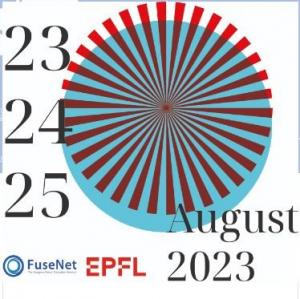
Registration is open for the FuseNet 2023 PhD Event in Lausanne!
On 23-25 August 2023, the École Polytechnique Fédérale de Lausanne (EPFL) will welcomes European fusion PhD students to meet and greet fusion researchers and fellow PhD students. It is a great opportunity to strengthen and expand your fusion research network. You can register here.
Register before 14 June 2023.
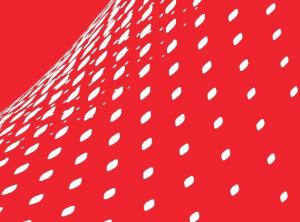
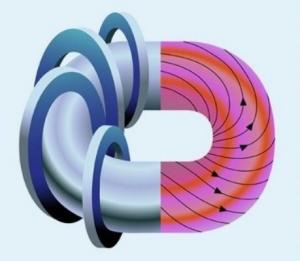
From 31 July to 4 August 2023, the Fusion Engineering Edition of the Princeton Plasma Physics Laboratory (PPPL) Graduate Summer School will take place in a hybrid format. Advanced undergrads, grads and early career scientists/engineers are welcome.
In 2023 the school will be focusing on the engineering challenges faced in the development of fusion energy and the topical areas tackling many of these challenges. It will consist of an introductory lecture on fusion engineering by PPPL Associate Laboratory Director for Engineering, Michael Ford, and mini-courses of three 1-hour lectures on the following five topics:
- Diagnostics (Delgado-Aparicio, de Looz, Kraus)
- Digital Engineering (Churchill)
- High Temperature Superconductors (Zhai, Chen, Li)
- Plasma Control (Kolemen)
- Plasma-Material Interactions and Plasma Exhaust (Maingi)
See all information on this PPPL page.
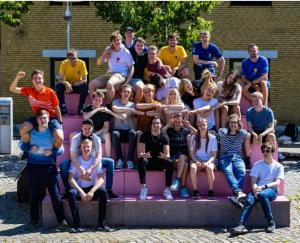
Går du på en gymnasial uddannelse eller har du for nyligt afsluttet gymnasiet og har sabbatår, og er du interesseret i fysik? Hvis svaret til begge spørgsmål er "ja", så er Fusionsenergi Camp noget for dig!
DTU Fysiks næste Fusionsenergi Camp bliver afholdt i sommeren 2023 på DTU i Kgs. Lyngby. Omdrejningspunktet for campen er plasmafysik og fusionsenergi. Som deltager på campen vil du komme til at arbejde som en forsker og lave forsøg på DTU's nye, og Skandinaviens eneste, tokamak NORTH. Der er både tilrettelagt et spændende fagligt program og et omfattende socialt program. Campen vil byde på faglig udfordring, sjov og nye venskaber med andre unge, der også interesserer sig for fysik.
Campen foregår i perioden 30. juli - 4. august 2023. Det er gratis at deltage og både kost og logi er dækket underopholdet. Du kan læse mere om ansøgningen til campen på nedenstående link.

Organized at a leading site for research in plasma physics and controlled nuclear fusion, the Culham Centre for Fusion Energy (CCFE) in Oxfordshire, UK, the Culham Plasma Physics Summer School aims to provide an introduction to the fundamental principles of plasma physics, together with a broad understanding of its fields of application. No preceding knowledge of plasma physics is assumed but familiarity with electromagnetism and applied mathematics at first-degree level will be helpful. Previous schools have attracted students from more than 50 different countries.
Lecturers are drawn from the Culham Centre for Fusion Energy (CCFE), the Rutherford Appleton Laboratory (RAL) together with leading European universities. All are renowned experts in their fields.
Students must be over 18 to attend the summer school and generally will be in their final year of undergraduate or first year of post graduate study. All classes are in English.
The next Summer School will take place from 17 to 27 July 2023. See this page for all information.
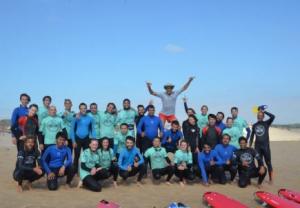
PlasmaSurf is a summer school on plasma physics, intense lasers and nuclear fusion, tailored for BSc/MSc engineering and physics students. It is a great opportunity to get an insight into these topics with a view to a future career, or to complement your curricular training by broadening your knowledge in an exciting and forefront area of physics.
See all information on the IPFN website.
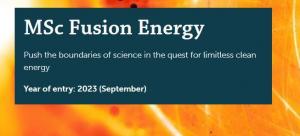
On this 12-month MSc Fusion Energy course you'll gain a firm foundation in fusion and plasma physics preparing you for a PhD in fusion energy or for employment in fusion laboratories, and a wide range of other industries.
In addition to the lecture modules, you will be introduced to the skills in computational and experimental plasma physics essential to fusion research (and highly valued in today's knowledge-based economy).
You'll complete the course with a major research project based at York Plasma Institute or potentially at an external organisation, such as Culham Centre for Fusion Energy or Rutherford Appleton Laboratory.
Join us to learn more about this exciting MSc Fusion Energy course at our open afternoon on Wednesday 12 July 2023 (online). See all information here.
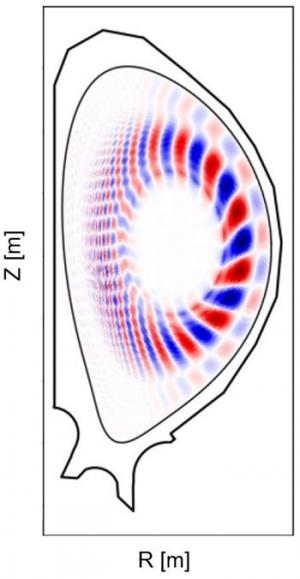
Registration is open now for the 12th ITER International School, which will be held from 26 to 30 June 2023 in Aix-en-Provence, France.
Hosted by Aix-Marseille University, the school will be organized around the topic "The Impact and Consequences of Energetic Particles on Fusion Plasmas." As the start of ITER operations approaches, it is timely to address this multidisciplinary theme that includes plasma self-heating by fusion-born alpha-particles, the influence of energetic particles on stability, diagnosing energetic particle transport and loss, and understanding runaway electrons.
Click here for further information on the 2023 school. Find out more about past schools here.
--Cutting-edge predictive simulation with the ORB5 code [T. Hayward-Schneider] showing a fast ion driven instability (n=12 Toroidal Alfvén Eigenmode) in ITER.
Vacuum technology is a key for many research projects and industries. This Vacuum Group training course, organised by the Institute of Physics Vacuum Group from 20 to 23 June 2023, is intended to provide a grounding in practical vacuum usage for people who use and have some experience in vacuum. It will be presented by experienced vacuum personnel and will cover the topics listed in the programme, where possible personal experiences will be used to highlight how various technical challenges were overcome. This course will be beneficial for both graduates and vacuum technicians looking to develop their knowledge and technical skills.
This training course is a medium-level course for vacuum engineers and technicians as well as students and researchers who require in-depth knowledge of practical vacuum. This course is aligned with the introductory level training courses at Vacuum Symposium — UK. Trainees will be issued with an Continuing Professional Development (CPD) certificate at the end of the course.
See more information here.
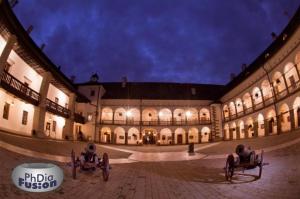
Organized every two years by CEA Cadarache (France) and the Institute of Nuclear Physics PAN (Poland), the PhDiaFusion Summer School of Plasma Diagnostics is designed for graduate students and their tutors in the spirit of a "master and apprentice" approach.
Diagnostic measurements are essential in plasma experiments to infer the relevant plasma properties, both for physical interpretation and for real-time control. In modern fusion devices such as ITER, DEMO, or the DONES neutron facility, the huge amount of generated data may require fast and efficient processes to infer the physical quantities with a reasonable computational cost. The use of artificial intelligence can be of a great help to achieve this goal, by feeding learning systems with experimental data and/or simulation results.
The 2023 edition of the PhDiaFusion Summer School of Plasma Diagnostics will cover the diagnostics data processing, interpretation, validation and real-time control aspects with a focus on artificial intelligence methods.
Join us for the next edition of PhDiaFusion from 19 to 23 June 2023 on the topic of "Artificial intelligence for plasma diagnostics and controlled Fusion."
Register on line by 15 May 2023. See all information on this page.

The Fusion Centre for Doctoral Training and UK Atomic Energy Authority (UKAEA) have worked with the fusion community to prepare a 2-week program created to meet the needs of the emerging fusion industry and associated supply chain companies and organizations, as fusion develops into the industrialization era in readiness for commercialization.
The Fusion Industry School is a 2-week interactive programme of lectures from world-leading experts in fusion, aimed at providing an overview of the current progress and challenges to industry professionals. The school consists of lectures, networking sessions, panel discussions and Q&As as well as visits to the UKAEA national fusion facilities.
The first week (19-22 June 2023) takes place in York (UK) and has an emphasis on the underpinning fusion science and technology. The second week (25-28 September 2023) is in Oxfordshire (UK) and will build on this first week, with more of an emphasis on engineering applications. The program is optimized for delegates attending both weeks, but you will still benefit if you are only able to attend one. You do not need to have prior knowledge of fusion science and technology.
The school is particularly adapted to "early and mid-career scientists, engineers and regulators to grow a common understanding in ... fusion expertise." (Justyn Crane, Optima Systems Consultancy)
Find out more on this page.
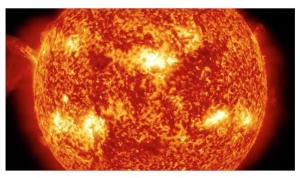
During the weeks of June 5-15 2023, the Princeton Plasma Physics Laboratory (PPPL) will virtually host an intensive course on plasma physics and fusion energy sciences, taught by world renowned scientists from various national and international institutions. The course is targeted at undergraduate students interested in plasma physics and fusion energy science and is open to public at large.
Registration is free and participants that attend the full course will receive a certificate of completion.
The introductory course will be fully conducted via Zoom, and in half-day sessions (12PM-5PM EST) in order to accomodate various time zones.
The content will reflect the broad research under the Fusion Energy Sciences and Plasma Physics umbrella, including discovery plasma sciences, magnetic fusion energy, fusion materials and technology and high energy density plasmas.
See all information here.
Apply by 31 May 2023 to the MIT Plasma Science and Fusion Center's Computational Physics School for Fusion Research. Accepted students will attend the School free of charge from 21 to 26 August 2023 on the MIT campus in Cambridge, Massachusetts (USA).
Due to the limited number of seats available, applications will be assessed based on brief statement (up to 200 words) describing how CPS-FR program and educational pillars will support your current or future research objectives and a Curriculum Vitae.
See all information here.
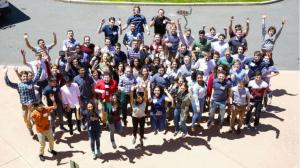
The Science Undergraduate Laboratory Internships (SULI) program encourages undergraduate students and recent graduates to pursue science, technology, engineering, and mathematics (STEM) careers by providing research experiences at the Department of Energy (DOE) laboratories. Selected students participate as interns appointed at one of 17 participating DOE laboratories/facilities. They perform research, under the guidance of laboratory staff scientists or engineers, on projects supporting the DOE mission.
The SULI program is sponsored and managed by the DOE Office of Science's, Office of Workforce Development for Teachers and Scientists (WDTS) in collaboration with the DOE laboratories/facilities.
The deadline for applying to Fall 2023 internships is 25 May 2023. See all information here.
The event from 22-26 May 2023 aims to provide young researchers from both developed and developing countries with critical skills related to artificial intelligence/machine learning (AI/ML) and computational physics in nuclear, plasma and fusion science.
The use of AI systems has had significant impacts in science and technology in recent years, promising to speed progress towards reaching the Sustainable Development Goals by 2030. These systems for learning and producing cognitive tasks leading to prediction and decision-making can similarly accelerate development in nuclear, plasma and fusion science.
A limited number of grants are available to support the attendance of selected participants, with priority given to participants from developing countries. There is no registration fee.
All information here.

If you're a software engineer, product manager, designer, data scientist, business manager in tech, work for a tech company, startup, digital agency, consulting firm or in a tech department you can learn the latest technology, grow your skills and deliver more value to your organization by attending WomenTech Global Conference (WTGC). Build a stronger network with women in tech communities worldwide, collaborate locally and globally, find new opportunities and contribute to the community to make an impact.
We focus on the latest and emerging technologies and powerful personal stories to create authentic experiences. We foster professional development opportunities to enhance your career, your organization, and your community. The WomenTech Global Conference is a mission-driven program by WomenTech Network and the Coding Girls Foundation, a non-profit organization dedicated to enabling women's empowerment in tech through leadership development, professional growth, mentorship, and networking events.
WomenTech Global Conference will feature a wide variety of live events hosted across various time zones including Americas, GMT & APAC. WTGC will enable participants to create a powerful conference experience, with inspiring keynotes, industry-specific summits, sponsor info sessions, career growth expo, workshops, open space discussion groups, contributions sprints, 1:1 networking opportunities, and interactive community content.
See all information here.
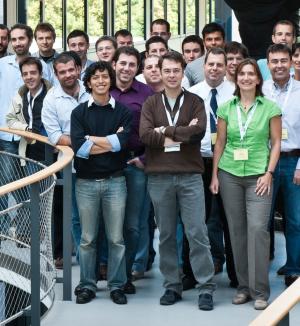
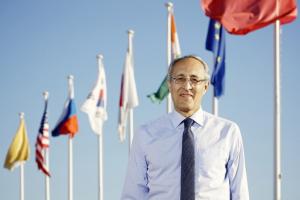
The European Consortium for the Development of Fusion Energy, EUROfusion, has launched a call for applications for the next round of EUROfusion Bernard Bigot Researcher Grants, which will fund up to ten outstanding early-career researchers for research projects starting in the first half of 2024. The grants will cover their salaries and part of the cost of their research activities and missions for up to two years.
To be eligible, candidates must currently hold a PhD and have defended their doctoral thesis within the two years preceding the submission deadline. Interested candidates should jointly prepare their application with a EUROfusion consortium member, who will submit the application and offer to employ the candidate for the proposed duration of the project.
Interested candidates can join the EUROfusion Training and Education Office's Q&A Information Session on Wednesday, 19 April 2023, at 14.00 CET.
Further details on the overall procedure and the information session are provided on this website. The submission deadline is 28 April 2023.
--The Researcher Grants are named after Dr Bernard Bigot, Director-General of the ITER Organization from 2015 to 2022.
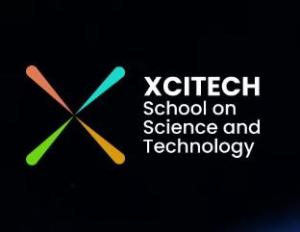
DONES Xcitech—the first DONES School on Science and Technology—will be organized in Granada, Spain, from 23 to 28 April 2023.
The Xcitech course, organized by the University of Granada and the IFMIF-DONES España consortium, is an advanced course primarily aimed at young scientists and engineers at the graduate and post-graduate level who are currently working in or interested in the area of fusion technology. It is open as well for experienced engineers and scientists already engaged in the broader area of fusion engineering, technology and science from research institutes and industry.
Planned for Granada, Spain, the IFMIF-DONES (International Fusion Materials Irradiation Facility-DEMO Oriented NEutron Source) facility will provide fusion-like neutrons for the irradiation of representative samples of fusion materials. A linear accelerator will accelerate deuterons at high intensity to impinge in a liquid lithium curtain circulating in a loop, which will produce neutrons capable of obtaining the required damage conditions.
DONES Xcitech aspires to become a reference in Big Science technologies, an incubator of highly qualified professionals and a meeting point between academia and industry. In this first edition, two courses will be held: "Radiation Effects on Fusion Structural Materials" and "IFMIF-DONES In Depth."
For more information, and to register, see this page.

X-STEM San Diego is a free in-person, conference-style event for middle and high school students designed to empower and inspire kids about careers in science, technology, engineering, and mathematics. Attendees will be inspired by presentations from leading STEM role models, participate in Q&A sessions, learn by doing in hands-on workshops, interact with students from all over the county, and have fun while learning about exciting career opportunities in STEM!
X-STEM San Diego is presented by the U.S. Space Force. Workshops are sponsored by General Atomics Sciences Education Foundation and the U.S. Air Force.
See all information here.

JT-60SA is the largest tokamak in operation, designed and built jointly by Japan and Europe. Its unique properties include the capability to produce long-pulse, high-beta and highly shaped plasmas. The JT-60SA machine, laboratories, experimental programme and its associated modelling activity can be an ideal playground for the training of Japanese and European students and young professionals to foster the new generations of fusion physicists and engineers.
The JT-60SA International Fusion School (JIFS) addresses the main aspects of fusion research, from plasma physics to engineering, with special attention to their combination into tokamak operation. Professional success in fusion research is often not only based on excellence in specific subjects (plasma theory, computing, experiments, diagnostics, engineering etc.), but also on a broad basis of knowledge allowing contributions to both scientific exploitation and realization of fusion experiments. The JIFS school aims to prepare the next generation of fusion physicists and engineers from Japan and Europe.
The first JT-60SA International Fusion School will take place from 4 to 15 September 2023. Registration ends 15 April 2023. For all information see this page.
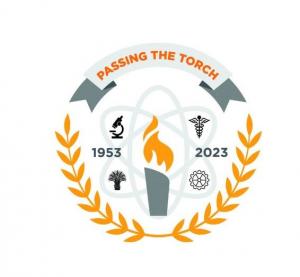
The ANS Student Conference will be held at the University of Tennessee, Knoxville from 13 to 15 April 2023. We are excited to welcome students from around the country to our beautiful city and introduce them to the exciting events happening within the Department of Nuclear Engineering as well as in the surrounding area.
We have chosen the theme of "Passing the Torch" to pay homage to our University's academic mascot, the Torchbearer. Living by this theme, we want the conference to be a symbol for continuing nuclear sciences from one generation to the next. Our intentions for all attendees of the conference are to reflect on the growth of the nuclear industry, along with thinking innovatively when hearing from those that came before to motivate nuclear scientists and engineers in progressing one step forward towards their individual aspirations.
For all information, see this website.
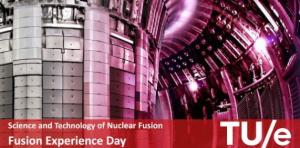
Registrations are open for the annual Fusion Experience Day organised by the department of Science and Technology of Nuclear Fusion of the Eindhoven University of Technology (TU/e) in the Netherlands. At this event, you can learn what this master's program has to offer to you and already experience the atmosphere as a student. The event will take place on Thursday 6 April 2023 14:00-17:00, and you can participate live at the TU/e or you can join online via MS Teams.
Register for this event by sending an e-mail to fusion@tue.nl before 3 April, and mention your current bachelor's and university, country of studies, gender, and indicate whether you want to join live or online. For more information please have a look at the website of the TU Eindhoven.
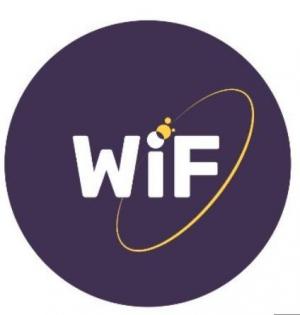
Meet the Women in Fusion Steering Committee in a webinar on 10 March 2023 that focuses on the Americas, with representatives from the US Department of Energy and other guests.
They hope you will join the global network of Women Fusioneers!
Sign up for the webinar here.
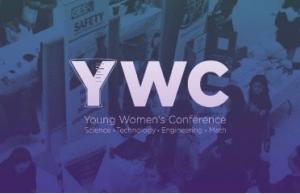
The in-person Young Women's Conference in Science, Technology, Engineering, and Mathematics (STEM) taking place on Thursday 16 March 2023 at Princeton University (New Jersey, US), introduces middle-school and high-school-aged girls (in 7th through 10th grades) to women scientists and engineers and the wide breadth of careers available to them in these fields. Prominent women scientists and engineers from around the region spend the day with the girls in a variety of formats that includes small-group presentations, hands-on activities, a keynote address, and a chemistry demo.
To find out more and to register, see this page.
Princeton Plasma Physics Laboratory (PPPL) sponsors the Robert Ellis Fellowship Program. To advance the values of scientific excellence and leadership, this prestigious Fellowship is awarded to doctoral thesis students and post-doctoral researchers who are enthusiastic, passionate and have a deep interest and a strong desire to pursue a career in plasma physics or fusion science, computation, engineering or a related field. The program provides funding for a nominal two-year appointment with the possibility of extension to a third year (contingent upon favorable annual performance).
Applications are open now at this link.
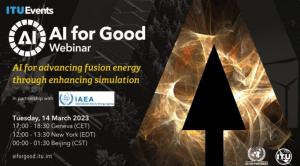
The International Atomic Energy Agency (IAEA) and International Telecommunication Union (ITU) will be organizing a webinar on AI for advancing fusion energy through enhancing simulation on Tuesday 14 March 2023, 17:00-18:00 CET, Geneva | 00:00-01:00 CST, Beijing | 12:00-13:00 EDT, New York.
This event invites Dr Michael Churchill, a fusion energy scientist in the Computational Sciences Department at Princeton Plasma Physics Laboratory (PPPL), and it is part of the AI for Good — an all-year online event focusing on identifying applications of AI to accelerate global progress towards achieving the UN Sustainable Development Goals.
Fusion energy is making great strides towards realizing its potential as a clean energy source. For decades fusion scientists and engineers have relied not only on experiment and theory but simulation to design, operate, and understand fusion devices. Today a range of simulations are applied to the fusion field, from those run in control scenarios all the way to large-scale massively parallel turbulence codes running on exascale supercomputers. AI/ML offers the promise of enhancing and accelerating these codes. Here we show research into using AI to accelerate physics kernels of larger codebases, and the care needed to ensure these PDE (Partial Differential Equations) solver surrogates conserve physical conservation laws. We also show how AI can aid in comparing experiment to simulation, using simulation-based inference techniques powered by neural networks.
This live event includes a 30-minute networking event hosted on the AI for Good Neural Network. This is your opportunity to ask questions, interact with the panelists and participants and build connections with the AI for Good community.
Sign up on this page.
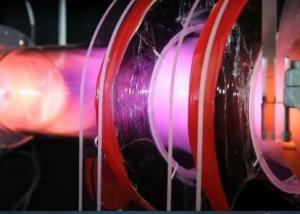
Applications are open through 10 March 2023 for Summer Term Plasma and Fusion Undergraduate Research Opportunities (PFURO). Current and recently graduated undergraduate students from accredited US institutions are invited to apply.
Participants will conduct 10 weeks of research during Summer 2023 with plasma/fusion scientists from undergraduate institutions throughout the US (universities, colleges, and other educational research institutions). Research focuses on one of four main areas: magnetic confinement fusion, fusion materials and technology, general plasma science, and high energy density plasmas.
See all information on this page.

Meet the Women in Fusion Steering Committee in a webinar on 10 March 2023 that focuses on Asia, with representatives from key Chinese, Japanese and Korean fusion enterprises and institutions.
They hope you will join the global network of Women Fusioneers!
Sign up for the webinar here.
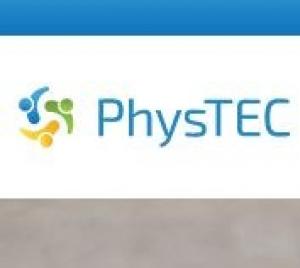
Join us for the nation's largest meeting dedicated to the education of future physics teachers, held March 3-4, 2023 in Las Vegas, Nevada. The meeting will also include on-demand content, virtual watch parties, and discussions.
PhysTEC Conference 2023 will feature workshops on programmatic best practices and departmental problem-solving, discussions on current issues relevant to the physics teacher educator community, and networking opportunities.
The conference will include events to benefit both new and returning participants. Attendees may register for hybrid attendance, which includes the in-person meeting and virtual events, or they may register only for the virtual events.
See all information here.
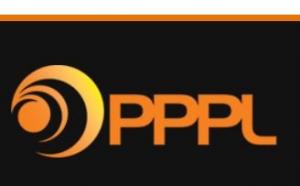
In the PPPL Operations Internship Program, undergraduate, and graduate students join staff at the Princeton Plasma Physics Laboratory for 10 weeks in the summer providing a valuable, practical experience performing tasks critical to the successful operations of a National Laboratory.
Participants are offered a competitive stipend, housing at the Princeton University dorms, and travel to/from Princeton. Participants will attend a week-long course in plasma physics at the start of the program and will deliver an oral and a poster presentation of their project at its conclusion.
To be eligible, applicants must:
- Must be enrolled in high school, in a four-year college or university
- Be eligible for work in the United States
For more information, see this webpage.
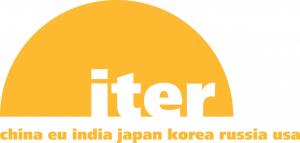
In January 2022, an agreement was signed between the ITER Organization and the Korean Domestic Agency to set up a Postdoctoral Research Fellowships program within the ITER Project to carry out research activities in fields of mutual interest in view of contributing to nurturing future fusion experts. The principal motivation of the Research Fellowships is the development of excellence in research in fusion science and technology within the ITER framework for the Korean post-doctoral researchers.
The Korea-ITER Postdoctoral Fellowship program allows the best young Korean researchers to participate in one of the great scientific and technical challenges on the 21st century and to work closely with leading experts in fusion science and technology within a unique international framework of the ITER Project.
Contract duration: 2 years. Apply before 28 February 2023 on the ITER website.
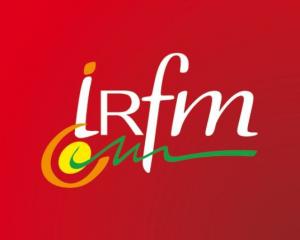
The Institute for Magnetic Fusion Research (Institut de Recherche sur la Fusion par confinement Magnétique, IRFM) has published its list of 2023 thesis topics. You can consult them on this page.
IRFM is an institute of CEA, the French Alternatives Energies and Atomic Energy Commission. Located in the CEA Cadarache Centre, with ITER next door, the 200+ physicists, engineers and technicians of the Institute carry out research on magnetic fusion as a potential future energy source.
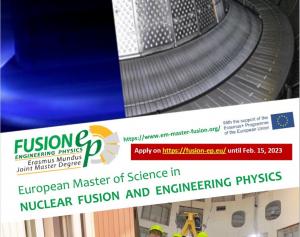
Applications are open through 15 February 2023 for the next wave of the FUSION-EP Master's program (September 2023 start). Scholarships are available to top-ranked candidates.
The ideal candidate has, or is in the process of obtaining, a Bachelor's degree or recognized equivalent (minimum 3 years of study, 180 ECTS or more) in physics or engineering (nuclear, materials, chemical, electrical). Students from all countries can apply. The program language is English.
The FUSION-EP program aims to train the next generations of magnetic confinement fusion physicists and engineers. It offers high-level, multinational, research-oriented education in fusion-related engineering or physics in close relation to the research activities of the partners, including the ITER Organization.
More information about the program can be found on the dedicated website. To apply, click here.

The Instituto de Plasmas e Fusão Nuclear (IPFN) invites applications for its Doctoral Program in Plasma Science and Engineering from eligible candidates by 3 February 2023 (for a September 2023 start, full time).
Successful applicants, up to a maximum of three, will benefit from a four-year doctoral scholarship supported by the Portuguese Foundation for Science and Technology. The official language of APPLAuSE is English.
For more information and to apply, see this IPFN webpage.
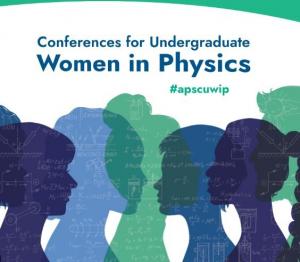
APS Conferences for Undergraduate Women in Physics (CUWiP) are three-day regional conferences for undergraduate physics majors in the United States.
The goal of APS CUWiP is to help undergraduate women continue in physics by providing them with the opportunity to experience a professional conference, information about graduate school and professions in physics, and access to other women in physics of all ages with whom they can share experiences, advice, and ideas. The national and local organizing committees of APS CUWiP strive to create a welcoming environment for all, including undergraduate women and gender minorities.
Interested in learning more about CUWiP? Sign up for updates.
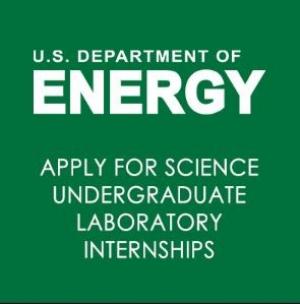
Apply by 10 January 2023 for Summer 2023 internships as part of the US Department of Energy's Science Undergraduate Laboratory Internships (SULI) program.
The SULI program encourages undergraduate students and recent graduates to pursue science, technology, engineering, and mathematics (STEM) careers by providing research experiences at the Department of Energy (DOE) laboratories. Selected students participate as interns appointed at one of 17 participating DOE laboratories/facilities. They perform research, under the guidance of laboratory staff scientists or engineers, on projects supporting the DOE mission.
Applications for the SULI program are solicited annually for three separate internship terms. Internship appointments are 10 weeks in duration for the Summer Term (May through August) or 16 weeks in duration for the Fall (August through December) and Spring (January through May) Terms. Each DOE laboratory/facility offers different research opportunities; not all DOE laboratories/facilities offer internships during the Fall and Spring Terms.
Read more about the SULI program, or apply here.
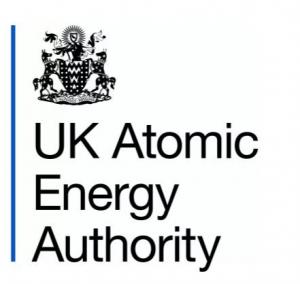
The UK Atomic Energy Authority is accepting applications now through 16 December 2022 for its Fusion Research Fellowships. These aim to appoint outstanding scientists or engineers who have recently completed (or will soon complete) a doctorate to a two-year research fellowship in any field of fusion research. Fellowships start in summer of 2023 and can be based at either UKAEA's Culham or Rotherham site.
For more details and to apply, see https://careers.ukaea.uk/job/ukaea-fusion-research-fellow/. Any queries, please contact Chris Warrick at chris.warrick@ukaea.uk.
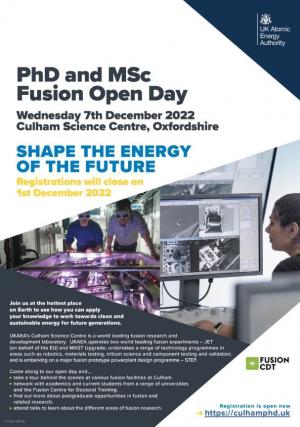
The Fusion CDT (Centre for Doctoral Training) and the UK Atomic Energy Authority will be hosting the annual PhD and MSc Fusion Open Day at Culham Science Centre on Wednesday 7 December 2022. If you are interested in post graduate opportunities in fusion research and technology, come along to meet with academics and students at a range of universities, tour fusion facilities at Culham and attend talks about key fusion research areas.
For more information and to register, see https://culhamphd.uk/. If you have any questions about the event, please contact Chris Warrick (UKAEA Outreach and Student Placement Manager) at chris warrick@ukaea.uk.
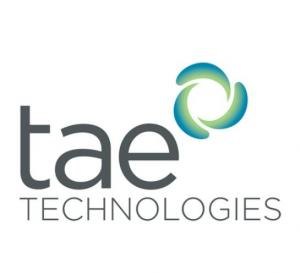
The National Society of Black Physicists in partnership with TAE Technologies invites applications for a paid internship position to begin in June 2023. We are a diverse group of 400 of some of the most brilliant physicists, engineers, and other experts from 40 countries around the world — all committed to improving people's lives through clean technologies. TAE values individual passion and expertise within our culture of collaboration. The NSBP internship is designed for students who will complete a B.S. degree or are enrolled in an advanced degree in Physics or Applied Physics during the 2022-2023 academic year.
TAE offers engaging internship opportunities where students work closely with their advisors. Our interns will assist TAE scientists with their work in one or more of the following areas:
· Plasma Diagnostics
· Lasers and Optics
· Electronics and Magnetics
· Data Science and Analysis
· Particle Accelerators
· Experimental Operations
· Plasma Simulation and Computational Science
Apply by 1 December 2022 for a June 2023 start. See all information here.
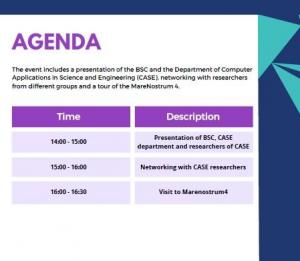
The Barcelona Supercomputing Center's Department of Computer Applications in Science and Engineering (CASE) is holding a networking event, where interested students can learn about the Center and the research being done by the CASE team. Attendees will also have the opportunity to visit MareNostrum4, the most powerful supercomputer in Spain.
The event is open to Bachelor and Master's students. Space is limited. Please register at this address.
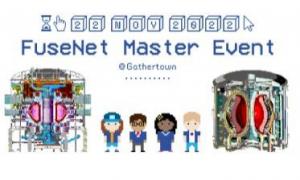
On 22 November, the second edition of the FuseNet Master Event will take place. The event will be held fully online on the Gathertown platform. All master's students in fusion-related fields are invited to join the event.
The day is filled with interesting talks by top scientists, introductions to fusion start-ups and ITER-related companies, and chances to meet your fellow students.
More information on the programme can be found on the registrations page. See you at the event!
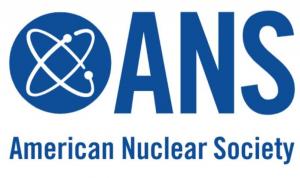
Join Eric Loewen, chief consulting engineer for GE Hitachi Nuclear Energy and former American Nuclear Society president, for this professional development opportunity created specifically for K- 12 science educators. Learn the basics and the latest about nuclear energy using fission and fusion to guide your students through the world of nuclear energy and technology. This is an interactive event so bring questions. You'll leave with a deeper understanding of nuclear energy and classroom-resources you can use immediately.
See all information here.
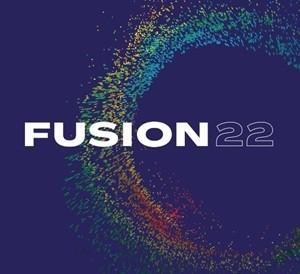
On Tuesday 18 October 2022, the London Science Museum will host FUSION22: The World Needs Fusion Energy. This hybrid event, which can be attended on line or in person, will showcase the incredible developments taking place in fusion all over the world.
Why do we need fusion energy? How will fusion change the world? What is the path to commercial fusion? What innovations are needed? What benefits from fusion R&D and spinoff technologies for your business? What does investing in fusion look like? (See the full agenda here.)
"Whether you're coming to fusion energy for the first time or have been involved in its development since the beginning, you'll find engaging, thought provoking and insightful sessions to fit your needs," say the organizers of the event.
The event is free. See this website to register to attend on line.

The European Fusion Education Network, FuseNet, is organizing its third annual European Fusion Teacher Day on 7 October 2022. Open to all secondary school science and physics teachers in Europe, the virtual event aims to introduce educators to nuclear fusion and exchange about how the subject can be taught in school. The ultimate goal is to increase exposure of students to the subject at the secondary level in order to spark interest and enthusiasm in the field.
Because the event is open to educators across Europe, the half-day program begins with local sessions via Zoom. After the local sessions, participants will come together for a global livestream before returning to a local follow-up session.
All information will be posted on this page.
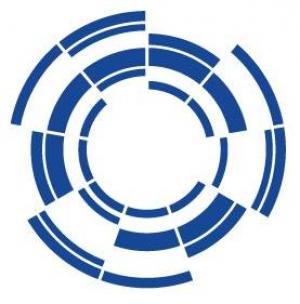
The European Consortium for the Development of Fusion Energy, EUROfusion, is calling for applications to its 2023 early career grant programs in fusion science and engineering.
EUROfusion Engineering Grants (EEG) are open to early career engineers within three years after their Master or PhD (or six years if relevant professional (industry) experience can be demonstrated). They enable selected candidates to specialize in a EUROfusion-relevant engineering topic.
EUROfusion research grants (ERG)--now renamed the EUROfusion Bernard Bigot Researcher Grants in honour of the former ITER Director-General--are attributed at postdoctoral level or equivalent to candidates who have defended their doctoral thesis in the two years preceding the submission deadline. Ten grants, for missions of up to two years, are foreseen for award every year.
Both calls are open until 13 September 2022. Applications should be submitted via one of the EUROfusion consortium members (acting as employing institute). See all details here.
The course covers the main aspects of plasma physics with emphasis on nuclear fusion:
• basics of plasma physics and nuclear fusion
• kinetic and magneto-hydrodynamic description of a plasma
• concepts and experimental results of tokamak and stellarator configurations
• plasma heating and diagnostics
• plasma-wall interaction and materials research
• ITER and the next steps towards a reactor
• astrophysical plasmas
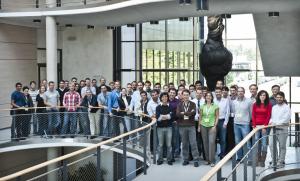
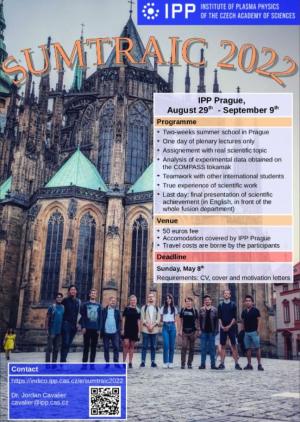
SUMTRAIC is a 2-weeks experimental SUMmer TRAIning Course in plasma physics and, in particular, in magnetic confinement fusion devices (tokamaks). It is organised annually at the Institute of Plasma Physics of the Czech Republic (IPP CAS) in Prague.
The centre of gravity of this school lays in the direct involvement of the participants in the processing and analysis of experimental data from the COMPASS tokamak or even in the participation in the experiments, when compatible with the experimental program. Due to the decommissioning of COMPASS, there will be no experiments this year.
Only one day will be devoted to lectures (how to access data, introduction to the COMPASS tokamak, python lecture...). The rest of the time, you will be paired in a group and supervised by one scientist. You will work on a real and relevant scientific topic. You will have to present your two weeks of work on the last day of the event in a 10 min presentation.
This year, SUMTRAIC will be organised from August 29th to September 9th and will be focused on data analysis related to the latest research topics investigated at the IPP Prague.
Deadline for application is 1 June and applicants can expect an answer around mid-June.
See all information here.
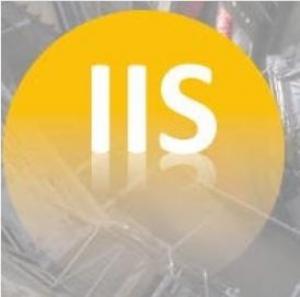
The 11th ITER International School will be held from 25 to 29 July 2022, hosted by the U.S. Burning Plasma Organization, University of California at San Diego, and General Atomics.
The subject of this year's school is "ITER plasma scenarios and control" with a scientific program coordinated by Peter de Vries (ITER Organization), David Humphreys (General Atomics) and Christopher Holcomb (Lawrence Livermore National Laboratory). As the start of ITER operation approaches, it is timely to address this challenging multidisciplinary topic: the development of integrated operating scenarios and required plasma control to facilitate the ITER goals, particularly for plasmas self-heated by fusion-born alpha particles.
The ITER International School aims to prepare young scientists and engineers for working in the field of nuclear fusion and in research applications associated with the ITER Project. The adoption of a "school" format was a consequence of the need to prepare future scientists and engineers on a range of different subjects and to provide them with a wide overview of the interdisciplinary skills required by ITER.
Further information on the 2022 school is available at https://iis2022.burningplasma.org/.

The 59th Culham Plasma Physics Summer School will take place from 18 to 28 July 2022 at the Culham Science Centre in Oxfordshire (UK).
The aim of the Summer School is to provide an introduction to the fundamental principles of plasma physics, together with a broad understanding of its fields of application. It assumes no previous knowledge of the subject, but familiarity with electromagnetism and applied mathematics at first degree level would be helpful.
The 2022 school will cover fundamental plasma physics, as well as important topics in fusion, astrophysical, laser and low temperature plasmas. Lecturers are drawn from the Culham Centre for Fusion Energy (CCFE), the Rutherford Appleton Laboratory (RAL) together with leading European universities. All are renowned experts in their fields.
Special arrangements are being made this year to allow for COVID. For more details and to apply visit the dedicated website.
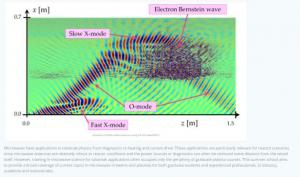
Microwaves have applications in tokamak physics from diagnostics to heating and current drive. These applications are particularly relevant for reactor scenarios since microwave antennas are relatively robust to reactor conditions and the power sources or diagnostics can often be removed some distance from the vessel itself. However, training in microwave science for tokamak applications often occupies only the periphery of graduate plasma courses. This summer school aims to provide a broad coverage of current topics in microwaves in beams and plasmas for both graduate students and experienced professionals, in industry, academia and national labs.
For more information, see this page.
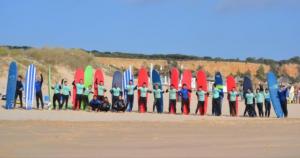
PlasmaSurf is an annual summer school on plasma physics, intense lasers and nuclear fusion hosted by the Instituto de Plasmas e Fusão Nuclear (IPFN), a research unit of Instituto Superior Técnico, University of Lisbon.
Taylored for BSc/MSc engineering and physics students, it is a good opportunity to gain insight in view of a future career or to complement current training by broadening knowledge in physics. A visit to the ISTTOK tokamak and the Laboratory for Intense Lasers is foreseen as part of the main activities. Outdoor activities—including surfing—are also offered.
PlasmaSurf 2022 will take place from 10 to 15 July 2022. The deadline for applications is 18 May. See all information here.
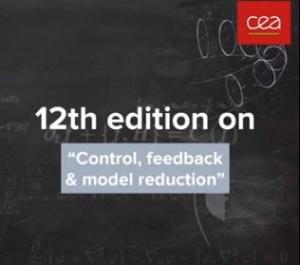
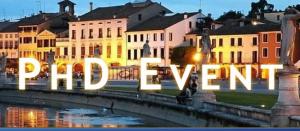
The way towards the European Fusion Roadmap is paved by the young fusion researchers addressing the challenges of making fusion electricity a reality.
The FuseNet PhD Event is the place where European fusion PhD students meet and interact with affirmed international fusion researchers, aiming to strengthen and expand the fusion research network.
This year's event is planned in person from 4 to 6 July 2022 in Padua, Italy.
See all information here.
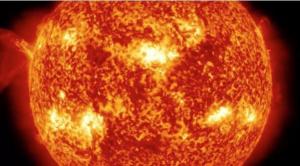
From 13 to 25 June, the Princeton Plasma Physics Laboratory (PPPL) will virtually host an intensive course on plasma physics and fusion energy sciences, taught by world renowned scientists from various national and international institutions. The course is targeted at undergraduate students interested in plasma physics and fusion energy science and is open to the public at large.
Registration is free and participants that attend the full course will receive a certificate of completion.
The introductory course will be fully conducted via Zoom, and in half-day sessions (12.00-17.00 EST) in order to accomodate various time zones.
The content will reflect the broad research under the Fusion Energy Sciences and Plasma Physics umbrella, including discovery plasma sciences, magnetic fusion energy, fusion materias and technology and high energy density plasmas.
Please visit this page for all information.
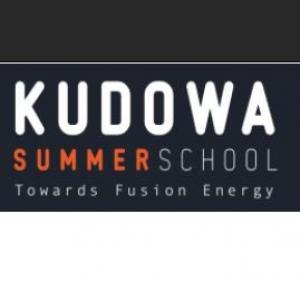
Kudowa Summer School is a biennial event which mission is to provide high quality scientific lectures to students willing to start their careers in fusion and plasma physics research. It is traditionally organized by the Institute of Plasma Physics and Laser Microfusion (IPPLM, Poland) and attracts participants from many countries.
In 2022, the School will be held in Kudowa-Zdrój, Poland, from 6 to 10th June and will cover a variety of topics interesting for all students involved in plasma physics research:
- Basic plasma and fusion energy
- Tokamaks and Stellarators
- Plasma focus and Z-pinches
- Plasma-diagnostics and technology
- Space plasma and electric propulsion
- Laser plasma
The total fee, which includes full board, a lecture notes, social programme and lodging is PLN 2 500. European students attending the Kudowa Summer School might be able to apply for funding through FuseNet (https://fusenet.eu/). Detailed information and the programme of the School including the timetable of lectures will be sent to applicants in due time.
For all information, see the summer school webpage.
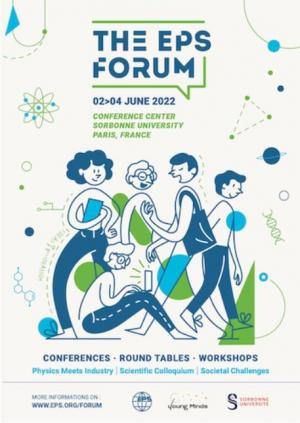
The EPS Forum is a three-day international meeting of interest for all European researchers, PhD students and Post Docs who wish to be introduced to exciting research opportunities in large companies and start-ups, and encourage a dialogue with representatives of the industry sector.
Day 1: Physics Meets Industry
Day 2: Scientific Colloquium & Societal Challenges
THE FORMAT OF THE EPS FORUM WILL INCLUDE A SERIES OF CONFERENCES, ROUND TABLES AND WORKSHOPS ON:
• Energy and sustainability
• Accelerators, high-energy particle physics, nuclear physics
• Quantum technologies and photonics
• Machine learning and artificial intelligence
• Biophysics, technological sequencing of biomolecules and human health
• Condensed matter physics: from quantum materials to additive manufacturing
For all information, see this page.
Topics
- Basic concepts/tools for computational nuclear science and engineering
- Fundamentals of nuclear observable challenges (computational methods for nuclear data; nuclear data for high fidelity, high performance reactor modelling and simulation)
- Advanced modelling and simulation methodologies (integrated multi-physics modelling for nuclear fusion plasma science; nuclear physic analysis in support of reactor design; reactor multi-physics modelling combined with digital measurement data)
- Open source data and codes for plasma/fusion/fission science and engineering
- Advanced computational methods (ML; algorithm development for data analysis in nuclear research; HPC; high performance humans in computing; data sciences for reactor systems)
The deadline to register is 11 March 2022. See all information on this page.
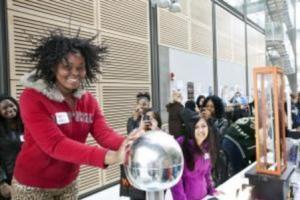
The Princeton Plasma Physics Laboratory is organizing the Young Women's Conference in Science, Technology, Engineering, and Mathematics on 6 May 2022. The virtual conference introduces middle-school and high-school-aged girls (in 7th through 10th grades) from US educational establishments to women scientists and engineers and the wide breadth of careers available to them in these fields. Prominent female scientists and engineers from around the region spend the day with the girls in a variety of formats that includes small-group presentations, hands-on activities, a keynote address, and a chemistry demo. Typically, schools select students to attend based on interest and performance in science classes.
For all information or to register students see this page.
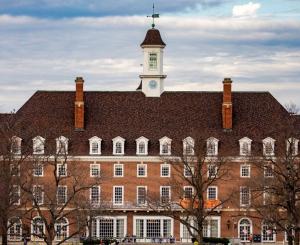
The American Nuclear Society (ANS) 2022 Student Conference will be hosted by the Department of Nuclear, Plasma, and Radiological Engineering at the University of Illinois Urbana-Champaign from 14 to 16 April 2022. The theme is: "Saving the World One Atom at a Time."
For all information visit the ANS website here.
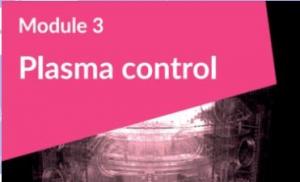
On Wednesday April 13, 2022 from 15:00-17:00 Eindhoven University of Technology's FUSION group is organizing their yearly Fusion Experience Day. This is an online session via Gather town.
On Thursday April 14, 2022 from 14:00-17:00 Eindhoven University of Technology's FUSION group is organizing their yearly Fusion Experience Day. This is a live session on TU/e Campus.
During these sessions you'll find out what the Master's degree in the Science and Technology of Nuclear Fusion at Eindhoven University of Technology (Netherlands) is all about. The curriculum will be discussed, internships and graduation projects are touched upon, and you will get acquainted with lecturers and students. Join in, and perhaps you will become part of the "Science and Technology of Nuclear Fusion" group in Eindhoven too!
See all information here.
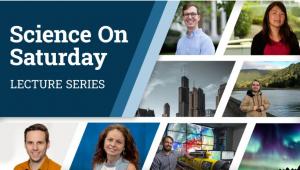
The U.S. Department of Energy's Princeton Plasma Physics Laboratory (PPPL) will once again give science fans of all ages a way to escape the winter doldrums with a series of scientific adventures exploring new frontiers in cutting-edge science during the Laboratory's popular lecture series beginning 29 January 2022.
The Science on Saturday series attracts hundreds of science enthusiasts each year ranging from elementary school students to those who have attended the lectures for decades. It is hosted by Andrew Zwicker, head of Communications and Public Outreach at PPPL.
"Feeling the Heat: Fusion Plasmas Used to Study Spacecraft Heat Shields" will be presented by Evdokiya Kostadinova of Auburn University on 12 March 2022.
See this page for more information or to sign up.

Current and recently graduated undergraduate students from US universities are invited to apply to the inaugural Plasma and Fusion Undergraduate Research Opportunities (PFURO) program, hosted by the Princeton Plasma Physics Laboratory(PPPL) in summer 2022. Participants will conduct remote research at undergraduate institutions throughout the US (universities, colleges, and other educational research institutions). Specifically, participants will:
- Conduct 10 weeks of remote summer research under the guidance of faculty and staff at US undergraduate institutions (universities, colleges, and other educational research institutions).
- Participate in the 2-week Intro to Plasma and Fusion course hosted by PPPL (June 13th-June 24).
- Be invited to join all of the workforce development seminars and workshops available for PPPL summer undergraduate interns
- Receive a $600 weekly stipend for the duration of the 10 week, 40hr/week research experience.
- Be sponsored to present their research at a national topical conference. Most students would present at APS-DPP, but it may also be GEC, ICOPS, SOFE, or another relevant topical conference.
Research will be conducted in one of four main areas: magnetic fusion energy; fusion materials and technology; general plasma science; and high energy density plasmas.
Applications are open through 11 March 2022. See all information here.
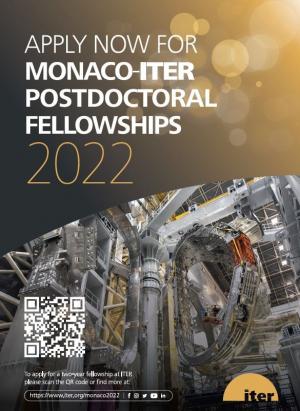
The ITER Organization begins recruiting on 17 January 2022 for the Monaco/ITER Postdoctoral Fellowship program. If you are a national of one of the ITER Members (China, the European Union, India, Japan, Korea, Russia and the US) or of the Principality of Monaco—and your PhD was awarded after 1 January 2019 (or you will have received your PhD by the deadline for taking up an award)—you may be eligible for a two-year postdoctoral position in the ITER Organization.
All application information can be found on this dedicated webpage. Applications close on 1 March 2022.
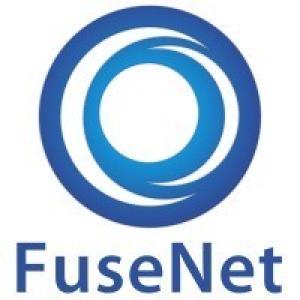
Thesis supervisors are invited to nominate a student for the 2021 FuseNet Master Thesis Prize by 10 February 2022.
FuseNet will award the prizes to students who write outstanding Master's theses that were (at least partially) carried out and completed across Europe. The prizes serve to highlight the important research that is carried out by dedicated and talented fusion students.
As a prize, the winners will be invited to present their work as a poster at the 48th European Physical Society Conference of Plasma Physics held in Maastricht, the Netherlands, from 27 June to 1 July 2022. Travel, subsistence, and fees will all be covered by FuseNet.
Learn more about the prize on the FuseNet website.

The U.S. Department of Energy's Princeton Plasma Physics Laboratory (PPPL) will once again give science fans of all ages a way to escape the winter doldrums with a series of scientific adventures exploring new frontiers in cutting-edge science during the Laboratory's popular lecture series beginning 29 January 2022.
The Science on Saturday series attracts hundreds of science enthusiasts each year ranging from elementary school students to those who have attended the lectures for decades. It is hosted by Andrew Zwicker, head of Communications and Public Outreach at PPPL.
"Diagnosing Fusion Plasmas: How to Perform Measurements in a 100 Million Degree Environment" will be presented by PPPL physicist Florian Laggner on 5 February 2022.
See this page for more information or to sign up.
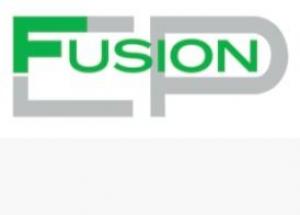
Students from around the world are welcome to apply!
This Master's degree is a unique opportunity for the selected students to study in two different European countries and to discover and work at major fusion research facilities during the two-year program.
The very international curriculum, the high quality and completeness of the curriculum and the high selectivity of FUSION-EP allowed it to be selected as an EMJMD by the Executive Agency for Culture, Education and Audiovisual. The EACEA provides a number of full scholarships for the best-ranked applicants.
For more information see the Fusion-EP webpage.
To apply, see this page.
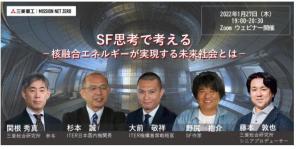
ITER計画の最前線で活躍する関係者がプロジェクトの進捗や日本の取り組みを紹介
『SF思考』著者・SF作家を交えたフリートークを通して核融合エネルギーの可能性について解説
三菱重工グループが運営する三菱みなとみらい技術館(横浜市西区)は、オンライントークイベント「SF思考で考える-核融合※1エネルギーが実現する未来社会とは-」を2022年1月27日(木)に開催します。本イベントは、三菱みなとみらい技術館として初めて社会人・学生(高校生以上)向けに開催するオンライントークイベントです。
「MISSION NET ZERO」をキャッチフレーズに、カーボンニュートラル社会の実現に向けた取り組みを進める当社グループの活動の一環として、本イベントでは未来のエネルギーといわれる核融合エネルギーにフォーカス。非連続で挑戦的かつリアリティのある未来を描くための手法として注目されている"SF思考"の視点から、「核融合エネルギーが実現する未来社会とはどのようなものか」「私たちの生活にどのような変化が起こるのか」といった切り口で未来社会を想像していきます。
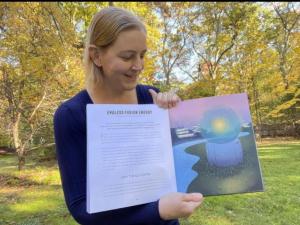
Webinar organized by the MIT Plasma Science and Fusion Center:
"Fusion energy is complicated. It involves ionized gases, superconducting magnets, tritium breeding, and more. Although the science behind all of this is indeed complex, it's also exciting. With some creativity and enthusiasm, you can explain fusion energy in a way that anybody can understand. That's exactly what Kathryn Hulick did in her new book for kids and teens, Welcome to the Future: Robot Friends, Fusion Energy, Pet Dinosaurs, and More."
For more information and to register see this webpage.

The American Physical Society (APS) Conferences for Undergraduate Women in Physics (CUWiP) are three-day regional conferences for undergraduate physics majors. The purpose of APS CUWiP is to help undergraduate women continue in physics by providing them with the opportunity to experience a professional conference, information about graduate school and professions in physics, and access to other women in physics of all ages with whom they can share experiences, advice, and ideas.
The 2022 conferences will take place virtually on 21, 22 and 23 January 2022.
The International Atomic Energy Agency (IAEA) has partnered with APS CUWiP and will host webinars featuring both IAEA and CUWiP talks on careers for women in nuclear, plasma and accelerator physics, including highlights from the IAEA Marie Sklodowska-Curie Fellowship Programme.
For more information and to register see this page.
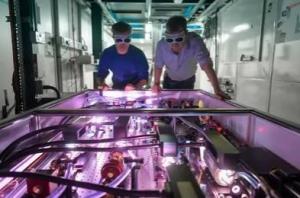
Shape the energy of the future: join scientists at the Culham Centre for Fusion Energy (Oxfordshire, UK) on 8 December to see how you can apply your knowledge to work towards sustainable energy from fusion.
The PhD and MSc Open Day will allow you to:
- Find out about postgraduate opportunities in fusion and related research
- Network with academics and students from a range of universities and from the Fusion Centre for Doctoral Training
- Tour the fusion facilities at Culham
- Attend talks about specific areas of fusion research
For more information or to register see this page.
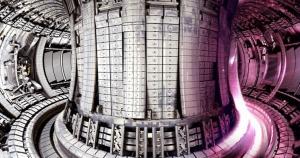
JET, the Joint European Torus, is an incredible device that has pushed forward the scientific understanding of recreating fusion energy (the power of the Sun) here on Earth! Harnessing fusion offers the prospect of low carbon, safe and abundant electricity for future generations — and could prove vital in tackling climate change.
JET is also a very significant engineering feat requiring many different people to operate and maintain the experiment. In this session staff from EUROfusion will explain the achievements of JET, talk about the latest results, and showcase some of the operational areas required to bring this important project together.
We invite young learners aged 14 to 18 to attend the virtual event with their school classes or as individuals.
For information or to register see this page.
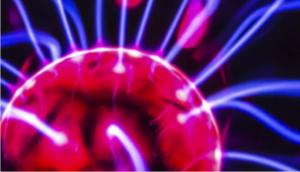
De Fusieshow is een wervelende wetenschappelijke show georganiseerd door de Faculteit Wetenschappen en de Faculteit Toegepaste Ingenieurswetenschappen, in samenwerking met het Centrum Nascholing Onderwijs, voor klassen uit het vijfde en zesde middelbaar (aso en tso). De leerlingen worden ondergedompeld in de wereld van kernfusie en de brede energieproblematiek. Vakkundige uitleg van experts wordt afgewisseld met experimenten, animaties en filmpjes. Er vinden tweejaarlijks een zestal sessies plaats, goed voor zo'n 3.500 gepassioneerde leerlingen.
De volgende editie vindt plaats op donderdag 18 november, vrijdag 19 november en maandag 22 november 2021.
Vragen over de Fusion Show? Zie deze website.
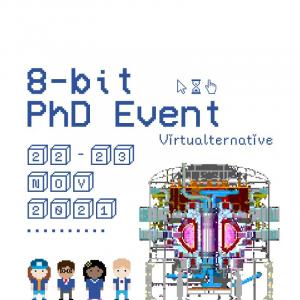
PhD candidates from all over Europe will meet on line from 22 to 23 November 2021 at the annual PhD Event organized by the European Fusion Education Network, FuseNet.
The event will feature high-profile keynote speakers, a top-notch scientific program and the much anticipate PechaKucha contest, where students present their research in 20 slides, 20 seconds per slide. There will also be moments to "gather" thanks to creative on-line offerings through the event platform Gather.town.
For more information or to register see this page.
